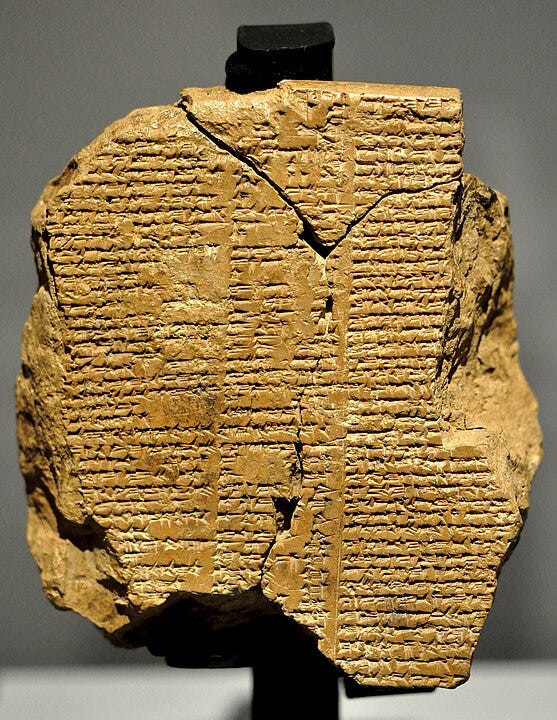At that time the Lord said to me, ‘Carve out two tablets of stone like the former ones, and come up to Me on the mountain, and make an ark of wood. I will write on the tablets the words that were on the former tablets, which you smashed, and you shall put them in the ark.’ (Deut. 10:1-2, NRSV)

Having grown up in church, I've long known time that the Ark of the Covenant contained the second set of stone tablets on which God had written the Ten Words. Recently, I began to wonder if Yahweh had always intended for the tablets to wind up in the Ark, or if this was a course-correction initiated by the sin of the golden calf (Ex. 32 ff).
Thus far, I’ve not found enough evidence to assert one interpretation or the other. If, however, placing the second set of tablets into the Ark was a change…what might be the message therein?
A commentary on human leadership
In my experience, we tend to interpret Moses' smashing of the tablets as a case of "righteous indignation." I wonder, however, if this doesn't amount to glossing over an unrighteous response.
If Moses wanted to vent his anger, it would’ve made more sense to march down the mountain and punch his brother in the face. He did, in fact, something akin to this when he ground up the idol and forced Israel drink the water fouled with its remains (Ex. 32:20) and ordered the sons of Levi to kill Israelites who were “running wild” (Ex. 32:25-29). This was in addition to the plague Yahweh sent upon Israel for making the idol in the first place (Ex. 32:35)!
Could it be that Moses’ smashing of the tablets was not something for us to admire, but something to warn us against placing too much hope in the gentle leadership of any human? Is this an illustration of the same truth David expressed when Yahweh gave him three choices of punishment for his own sin:
…the Lord came to the prophet Gad, David’s seer, saying, ‘Go and say to David: Thus says the Lord: Three things I offer you; choose one of them, and I will do it to you.’ So Gad came to David and told him; he asked him, ‘Shall three years of famine come to you on your land? Or will you flee for three months before your foes while they pursue you? Or shall there be three days’ pestilence in your land? Now consider, and decide what answer I shall return to the One who sent me.’ Then David said to Gad, ‘I am in great distress; let us fall into the hand of the Lord, for His mercy is great; but let me not fall into human hands.’ [emphasis added] (2 Sam. 24:11-14)
A commentary on divine faithfulness
While the tablets themselves seem a symbol of the covenant between Yahweh and the people, I wonder if the fact that they are retained in the Ark is an emblematic prophecy about Who you can trust to really maintain this covenant? After all, it’s not like Israel could open up the Ark and consult the terms and conditions any time they wanted (cf. 2 Sam. 6:3-8 ; 1 Chron. 13:7-11).
Yet inside the Ark, even though they cannot see the tablets Israel can trust in the One who “holds” them. He will not smash them in anger, like Moses did. Yahweh can will preserve His covenant…even when we do not.
So? What do you think of this? Are there problems with this interpretation that I'm not seeing? Let me know in the comments.



